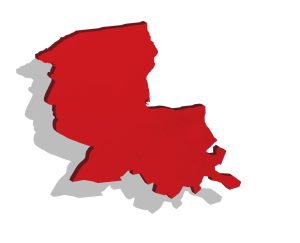USG members fill gaps in their education with LGBTQ+ 101
October 26, 2016
More than 20 Undergraduate Student Government members gathered on Tuesday night in a packed Lavin-Bernick Center for University Life conference room, though a senate meeting was not on the agenda.
Instead, senators listened as a conversation called LGBTQ+ 101 was facilitated regarding the treatment of LGBTQ+ individuals on Tulane’s campus and in society.
According to senator Caroline Scott, who presented the workshop, the goal of the session was to equip senators with the vocabulary, history and general knowledge about issues that impact their LGBTQ+ constituents. These issues include misgendering, microaggressions and overt discrimination through policy.
“I [thought] this would be a good way since we don’t have Senate tonight so I know everyone’s free, to get people in, not only fulfill their training but to give them tangible skills that will help them think about the ways that they interact with their constituents and also how the ways in which they represent them,” Scott said.
During the session, Scott covered basic definitions like transgender, queer, gender bending and others, as well as how to ask for someone’s pronouns. They discussed different day to day difficulties faced by LGBTQ+ individuals, such as the fear of being outed in unsafe spaces, rude language and bathroom policies.
Scott said she felt although a majority of the individuals in USG are well-intentioned towards the queer community, many do not have a broad knowledge of these terms or the community as a whole because of the lack of education around LGBTQ+ issues in elementary and high school.
“I feel like knowledge is not generally high because of the issues we talked about like curriculum development,” Scott said. “I mean you’re not taught about these issues in school, you never have a class about ‘how do I interact with someone, how do I ask someone what their pronouns are.’ The knowledge is not there because the education systems aren’t there. So this is like another way of trying to get that education out there.”
Last year, USG developed policy to address these gaps in education about marginalized groups on campus and issues not commonly covered in school curriculums like LGBTQ+ issues, sexual asssault and substance abuse. The policy was passed in the 2015-16 school year and requires USG senators and members of the Executive Board to attend at least one training a semester on one of the issues, like Trans 101.
Some senators, however, such as junior Josh Rosenbaum said they feel the required sessions are a step towards progress but are concerned senators will treat it as another requirement to get over with. Rosenbaum said he feels a follow up would help with this issue of accountability.
“I am also worried that the requirement may be fulfilled to ‘check a box,’ rather than to honestly and fully engage with these issues and communities in some cases,” Rosenbaum said. “While this is a really positive step in the right direction, there is a lot more we all can and should be doing to guarantee we are informed and accountable.”
USG president Autumn Gibbons said while the requirement doesn’t guarantee senators will create legislation about the issues, the knowledge taken from these sessions are what she hopes sticks with senators.
“I think that these workshops do a good job in inciting individuals to to be more aware, but the excitement that someone feels when they leave that room is the same excitement you feel when you leave any room, and it ends up dwindling,” Gibbons said. “But I think what stays is their awareness and I think that’s way more important.”









Leave a Comment